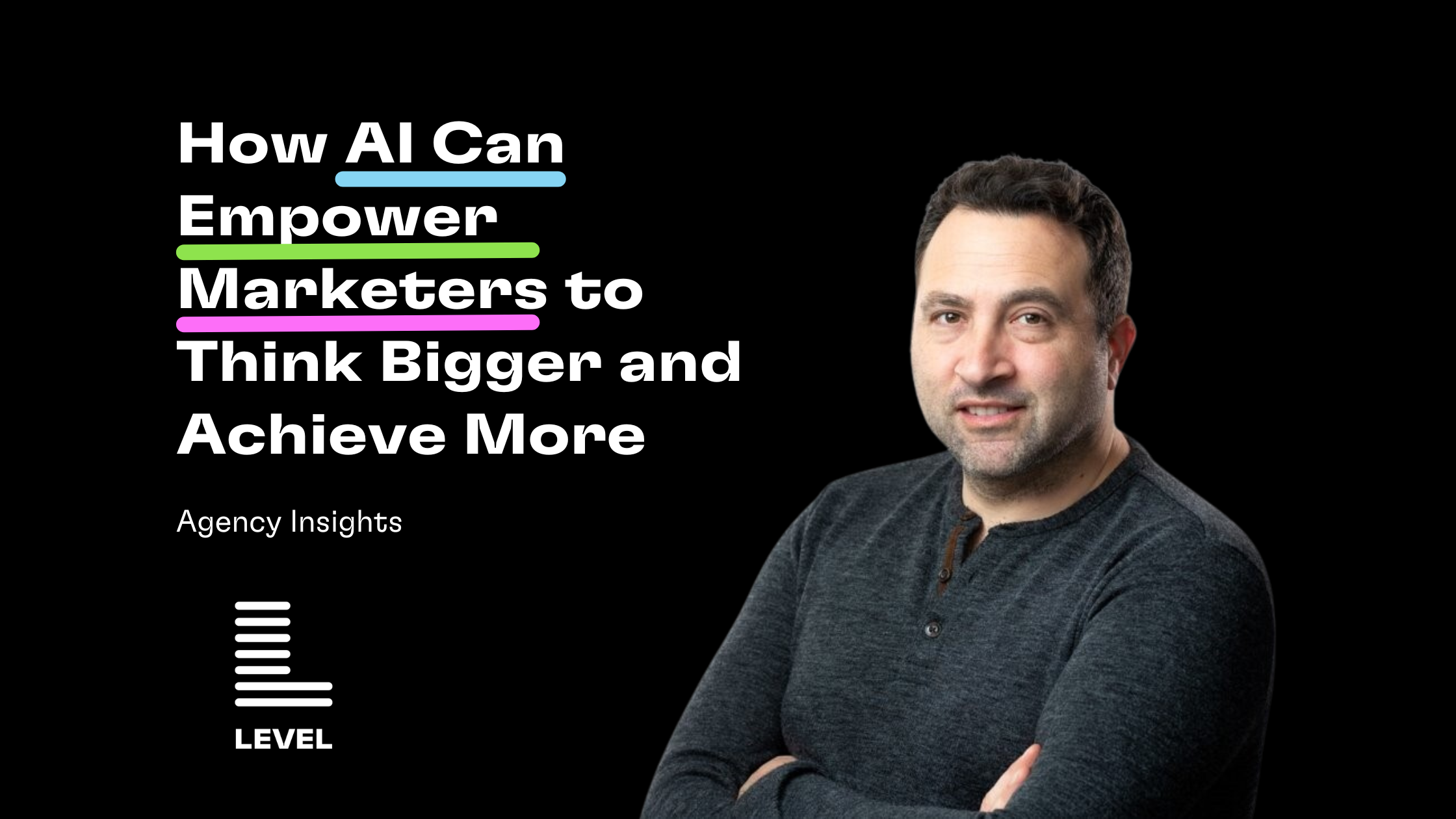In our latest episode of Test. Learn. Grow., we are joined with Level’s four Center of Excellence (COE) leads, Mike, Tim, Kyle, and Amy. These leaders make up our core, functional think tanks – Creative, Media, Data, and Client Partnership.
Rather listen than read? In this podcast episode, Myles and Allyn talk to the experts within different areas of our marketing agency to get their perspectives on how best to recession-proof your marketing.
It seems we can’t open a phone without seeing the words inflation, recession, or downturn litter on our news channels and social feeds.
The US economy will probably slip into a major recession. Everyone is feeling the effects of those price increases. As marketers, we are no strangers to this and witnessed it in 2008 and during the Covid pandemic in 2020. It is tempting for businesses to trim every area, but data shows cutting marketing is the worst thing they can do.
How does a recession affect your marketing message?
Myles and Allyn first spoke with Mike Rubino, head of the creative COE.
Customers are being bombarded with scary messages, using intimidation tactics to get their business, but is this the right approach? Mike brings up how easy it is to be reactionary and simply remind people how negative the situation is, but this is not the right tactic, nor is maintaining the same creative as before the recession. It is important to recognize the reality and give your consumer options. Understand your consumers and empathize with them. You can hear Mike talk more about empathy in The Impact of Performance Creative.
How can you meet your customers where they are, and give them opportunities to see where they could be? By simply talking to them, you can see what has changed and how it is affecting them. Connect what you provide as a business and the challenges they are facing in a deep and thoughtful approach while still maintaining your brand voice. Mike brings up the example of fast-food restaurants advertising for drive-throughs during the pandemic, as opposed to dine-in options, since that is what their customers needed at the time. If situations are changing, it is important to be nimble and pivot your messaging to fit into the current economic situation.
How does a recession affect your media?
Tim Fitzgerald, head of the media COE tackles this next question.
We talked about the shifts made to your creative and messaging with Mike, but are there any changes when it comes to media? Marketing spend can be immediately tied to Ad return, so it is best to focus on different ways to manage this, rather than cut advertising spend altogether. However, where you are in your business lifecycle impacts where you should be focusing on spending. Are you a mature business or start-up? In a specific vertical? What is your competition doing? For instance, a mature business in a competitive marketing landscape should focus their business on customer retention. Utilize omnichannel marketing and nurture your customers, adding value along the way, so they are happy with how you treat them through difficult times. This is the time for marketing dominance as you dial in and bring in new customers, while others are pulling out.
Even though digital marketing wasn’t around as we now know it during the Great Depression, there are still many examples that show how marketing can help even when times are tough. During the harsh times of the Great Depression Kellogg’s, for example, doubled their ad budget while their competitor, Post, cut theirs. Kellogg remains the top brand of cereal today. Tim makes the point however that even though a business like Kellog’s significantly increased their budget, that isn’t necessarily what is needed for all businesses – simply staying the course can be enough, especially for young companies in a non-competitive space. Instead, be more direct with where you drive your ad spend and focus on where people are actively buying.
Keep Calm, and What?
Kyle, head of Level’s data COE joined our hosts next, diving into the strategy of spending during a recession.
Everyone knows the saying, “Keep Calm and Carry On”. However, during a recession, it might be best to instead pivot your thinking to, “Keep Calm, Think Carefully, and Be Agile.”
Keep Calm.
It is true, anytime you are running a business, especially when faced with stressful situations, you must remain calm. If you aren’t, there can be serious ramifications. But there are also huge opportunities in a time of crisis.
Think Carefully.
Enter the situation with a mindset to think carefully. You must think about the particulars of the situation, before you try to get into the data, get a framework to think about it. What type of recession is it? Plan for it, which lessons can you draw or not draw from the past. Also, look at your customers and consider who they are. Are they the type of person to slam on the breaks? Or are they living for today, unbothered? Once you put your customers in cohorts on customers and look at the recession, look at your business. What do we do? What’s working and what isn’t?
Be Agile.
Now you have looked, you must be willing to make critical decisions.
How should Client Partnerships reconsider their marketing mix and strategies?
Myles and Allyn wrapped up the discussion with Amy Stetler, head of the client partnership COE.
While everyone summed up the approaches at the macro view well, Amy shared aspects that you should be thinking about in a general sense. Firstly, connecting with clients to deeply understand what is driving their business today and what will persist during the recession. During a recession, it is vital to take a step back and look at the whole operation. Find the areas that can be dialed down and refocus investments where overhead costs are low to save. Also, be sure to focus on long-term benefits and streamline your product portfolios and messaging in market to support them. Next, it is important to evaluate your various audiences and the strategy you use toward them. Take time to understand their intention, and reprioritize to fit in with it. A tried-and-true method to determine what is essential is a SWOT analysis. If you aren’t familiar with the analysis, it involves looking at the company’s strengths, weaknesses, opportunities, and threats. Think long run with this thoughtful analysis, what do I need to do today to get to where I want to be? Do everything with intention.
Maintaining a strong business during a recession is no small feat but with the right tools, guidance, and marketing strategy, you may find you come out even stronger for the work you put in.
If you want to learn more about how Level Agency can recession-proof your marketing strategy in preparation, please reach out. We’d love to answer any questions!








